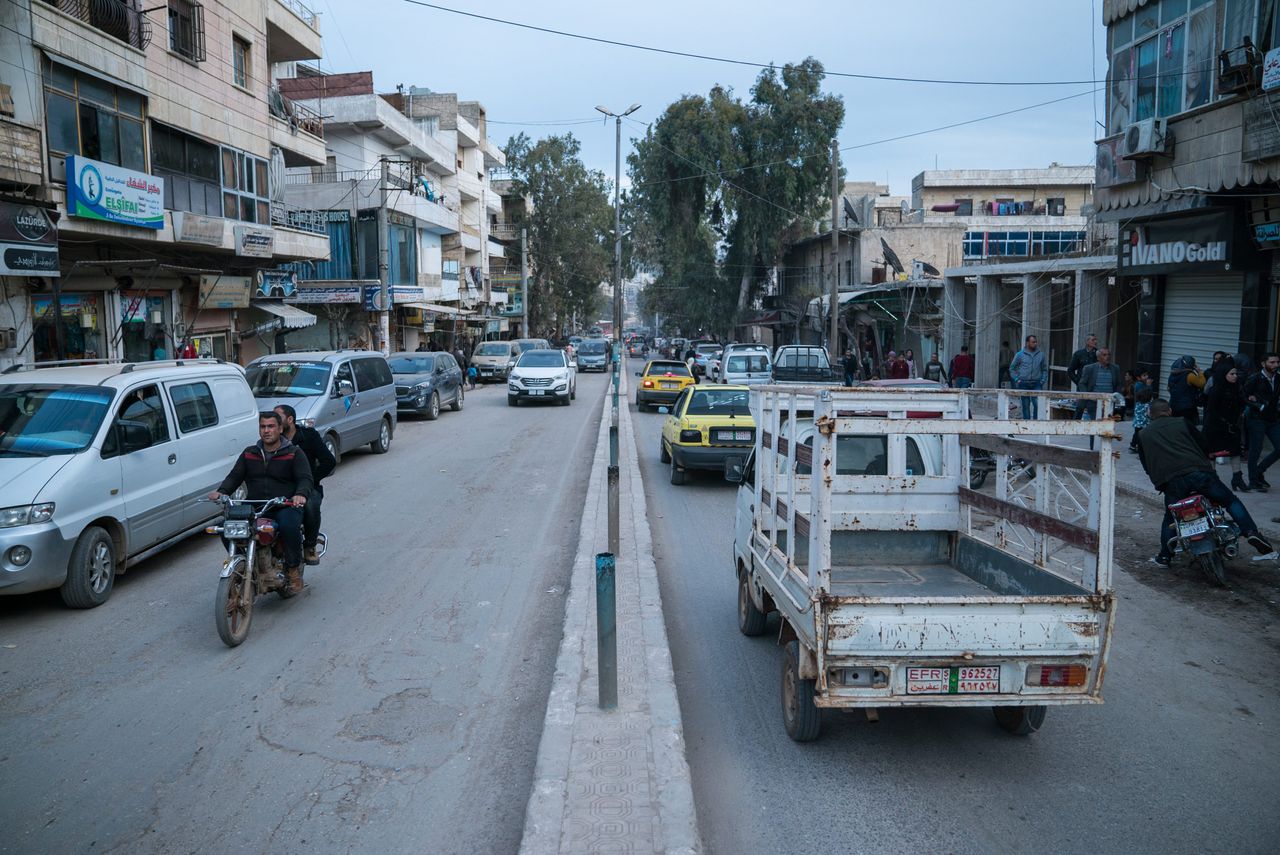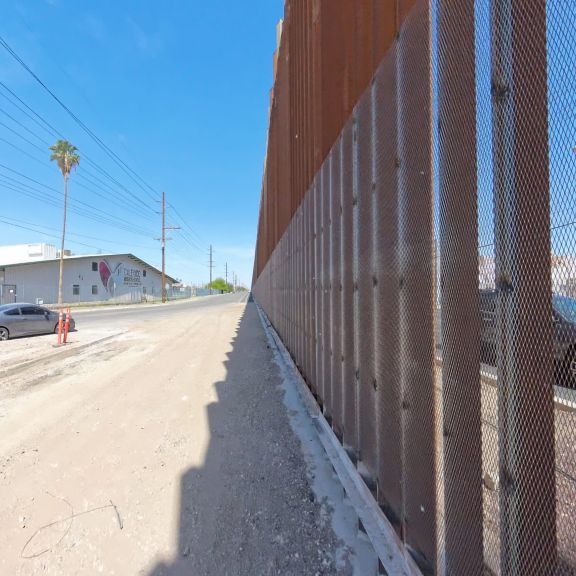
Rodi was running away from war to Afrin four years ago.
I met him in Kobanî, a Kurdish city close to the border with Turkey. The doctor asks me to change his name in the article. As usual, I ask him which name he picks.
– Whichever you want – he replies.
So, the doctor will be called Rodî. We sit in a small park in the city centre. Recently naked trees have turned green beautifully. Rodî is cautious. At the beginning, he asks me for the documents, because he wants everything to be in accordance with the law. He checks my permit issued by the local administration, nods his head and agrees to talk. it was the first time someone asked me for documents.
He is 38 years old. He was born in Kobanî but he feels like a newcomer there. He lived in Girî Spî (Kurds’ name for Tall Abyad) for years. Tall Abyad and Kobanî are close to each other – not more than 70 kilometres – and close to the border with Turkey. Rodî had to leave Tall Abyad. In 2014, ISIS fighters were approaching the city and they were about to take it over. Rodî and his wife did not know what to do. Nearby cities were under the same threat, the jihadists seemed unstoppable. There was not much time to think. His wife’s parents, who lived in Afrin, were able to help them.
– They just called us and said: “Come to us” – Rodî recalls.
Afrin was a peaceful place to live. Generally, nothing really dangerous happened there since the beginning of war in 2011 till January 2018. One of the few places unharmed by all those gruesome events. One could say Afrin took advantage of war. The fights were taking place in Aleppo so many people sought shelter in Afrin, sixty kilometres to the north. Some began to invest there. Afrin was in the boom times.
– It was calm there. And there was no unemployment – says Rodî.
Then he adds regretfully – It’s all gone.
Till the very end
On July 20, Turkey and some militias (Free Syrian Army among others) launched an operation “Olive Branch”. As a result, according to the data of the Syrian Observatory For Human Rights based in London, at least 2436 people, including civilians, were killed. At least 137.000 people had to leave their homes, and from 50,000 to 70,000 people stayed in Afrin. Such data is provided by the UN.
Many residents were waiting to leave the city till the very end. So did doctor Rodî. He worked at the emergency department of the hospital in Afrin.
– The situation has been very difficult recently. We were not able to help all people who came to us – he says. – We did our best.
On the one hand, there were simply too many people. According to Rodî, about 50 people a day with fragmented wounds of varying degrees. On the other hand, members of the medical staff also escaped from the city. They just disappeared without a trace.
– Nobody said he was going to leave. People just did not come to work one day – he explains.
However, Rodî does not blame them.
– It was really hard and dangerous. They had children and families in the city. More and more bombs and missiles were falling there.
In mid-March, Turkish planes dropped bombs on the city. There was also artillery fire. Explosions were getting closer to the hospital.
On March 15 Rodî came to work. A meeting lasting several hours was held. Hospital’s workers were trying to decide what to do. It was not easy to decide because nobody knew what was exactly going on. It was really difficult to find valuable and verified information in the city.
– Some people suggested that we worked in the basement. It was impossible. We decided to leave Afrin and help outside the city – says Rodî.
On March 16, the day after the departure, the hospital was bombed. 16 people died according to the Syrian Observatory For Human Rights.
After the meeting at work Rodî came home, took his wife and kids and get them a bus to Qamishli, the capital of northern Syria.
He returned to the hospital. His chief of medicine informed him that he had received the order (Rodî does not know whose order) that all the employees had to leave the city. The doctor got into the car and joined the convoy of buses with his family inside. They reached Kobanî the next day.
“I believe one day we will come back”
Rodî says his heart bleeds like it bled when he had to leave his home in Tall Abyad. He has to get to know people here and get used to the city. He rents a house in Kobanî together with his friend, another doctor from Afrin, and his family. He managed to find a job. He works on weekends in a hospital in Tall Abyad.
– It makes me really sad that some strangers with long beards came to our city – he says.
It means that there are also religious fundamentalists among the fighters supported by Turkey.
– However, I have a feeling we will soon return to Afrin. It will take a year or two.
– Is it possible to do it without bloodshed? – I ask. Rodî hesitates and answers after a while – Rather not. They do not understand what the word “peace” means.
Photo: Afrin eight days before it was taken over by the Turkish troops and militants.






















